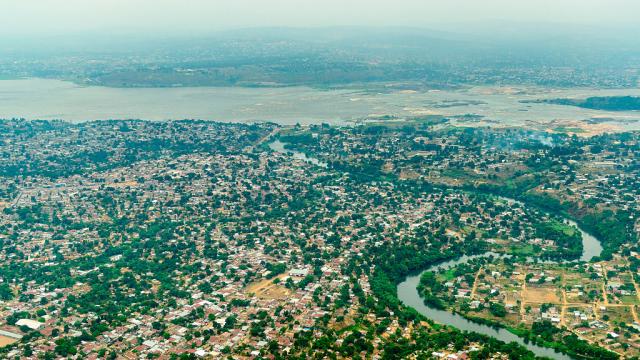Alphabet’s Project Taara has now served nearly 700TB of data across the Congo River – a distance of almost 5kms.
Project Taara came about earlier this year after Alphabet let go of the internet balloon that was Project Loon. Project Loon was an initiative exploring the use of high-altitude helium balloons to distribute wireless internet. It successfully deployed a fleet of internet-delivering balloons in Kenya last year, but the tech was seen as not exactly being commercially viable.
The learnings haven’t gone to waste, however, and now Project Taara has hit a milestone.
In a blog post, Alphabet reveals Project Taara’s wireless optical communications (WOC) links are now beaming broadband across the Congo River.
After installing Taara’s links to beam connectivity over the Congo River, Taara’s link served nearly 700TB of data in 20 days, with 99.9% availability.
Alphabet says this is the equivalent of watching a FIFA World Cup match in HD 270,000 times.
Working with Liquid Intelligent Technologies, the initiative bridged a “particularly stubborn” connectivity gap between Brazzaville in the Republic of the Congo and Kinshasa in the Democratic Republic of Congo. This area is separated by the Congo River, and the two places are only 4.8kms apart.
The problem is that connectivity is five times more expensive in Kinshasa because the fibre connection has to travel more than 400kms to route around the river.
In the same way traditional fibre uses light to carry data through cables in the ground, Project Taara’s wireless optical communication links use very narrow, invisible beams of light to deliver fibre-like speeds.
To create a link, Project Taara’s terminals search for each other, detect the other’s beam of light and lock in like a handshake to create a high-bandwidth connection.
“While we don’t expect to see perfect reliability in all kinds of weather and conditions in the future, we’re confident Taara’s links will continue to deliver similar performance and will play a key role in bringing faster, more affordable connectivity to the 17 million people living in these cities,” the blog says.
Alphabet says WOC haven’t been considered a viable option because the signal reliability is compromised by conditions like fog and haze, or interruptions like birds flying in front of the signal. But it’s confident its efforts can combat this.
